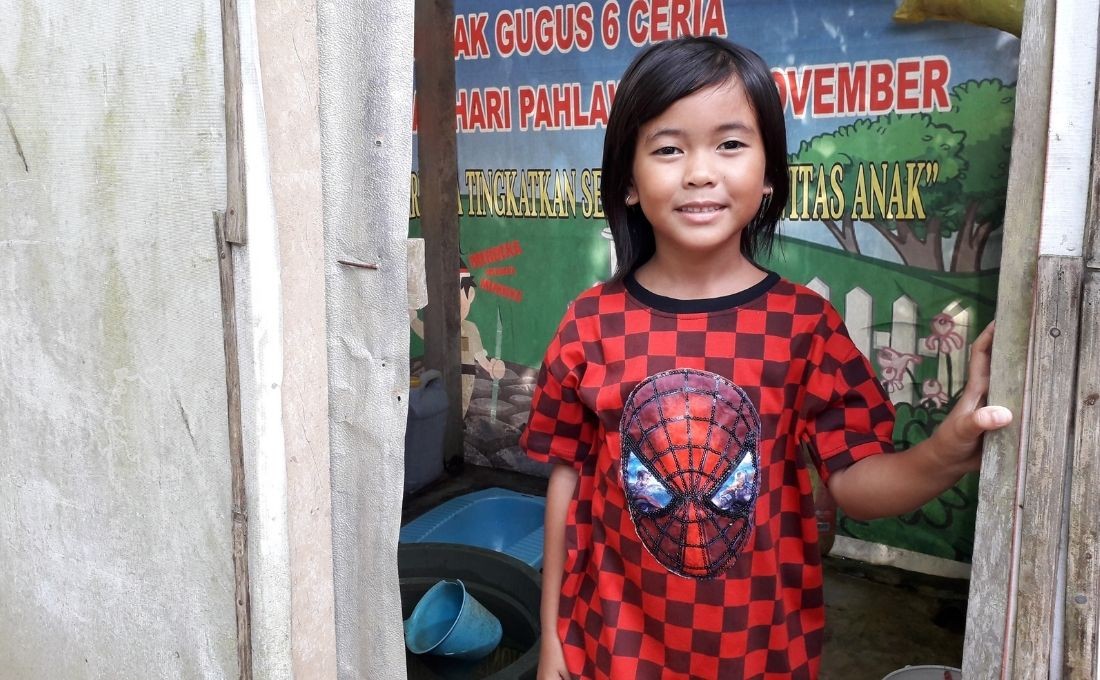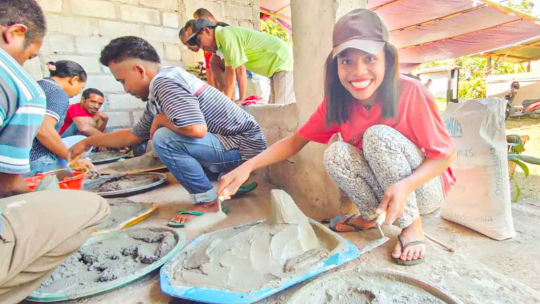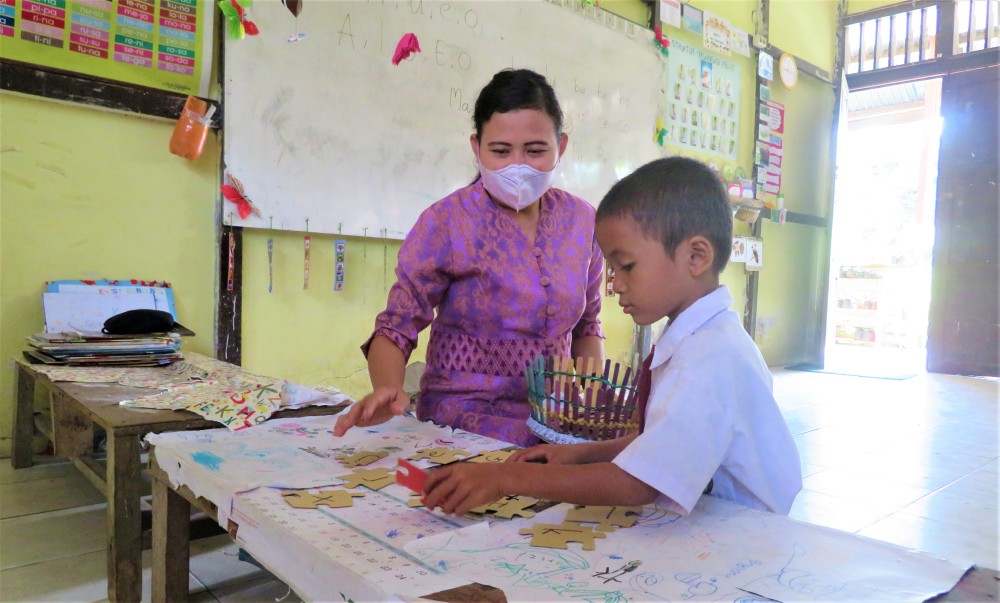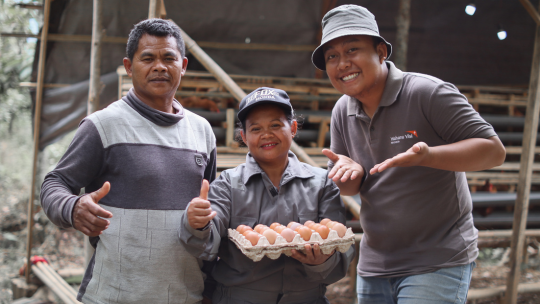No more Open Defecating in the Kapuas River

The problem of access to sanitation facilities becomes one of the issues that occur in Sekadau District, West Kalimantan. Some of these issues occurred in two sub-villages on the banks of the Kapuas River. The river becomes very dirty because people easily do open defecate, taking a bath, washing clothes and dishes in the river. Rifka (6), a child from Sekadau Regency, and her family are among those who practice the bad habit.
"Back then, when I defecated in the river I was afraid because wild animals such as crocodiles could appear," said Rifka.
Faced with these facts, Wahana Visi Indonesia collaborated with the village government of Rifka's home and initiated the CBTS (Community-Based Total Sanitation) program to change people's habits. Village funds that have been allocated by the village government since 2018 make this program easy to do together. Wahana Visi Indonesia (WVI) Sekadau Program Area conduct triggering and dissemination on a clean and healthy lifestyle for children and the community, while the village government encourages the construction of healthy latrines in each household through village funds.
Rifka's parents confirmed this collaboration. The assistance of the village government and neighbors are real in building the toilets for villagers.
"We were told about the importance of healthy latrines, and we finally realized that we wanted to build a healthy toilet in our house," said one of Rifka's parents.
Rifka also received knowledge related to a clean and healthy lifestyle at school. Rifka now understands how to wash the hands using the soap correctly. She is now happy because she has her own toilet in the house.
"Our environment is also clean. It is safer if we have to defecate because we do not need to go to the river anymore,” she said happily.
The two subdistricts mentioned above have been declared as an Open Defecation Free Village in September 2020. As many as 85 healthy toilets have been built from October 2018 to August 2020 for 568 households.
Written by: Stefanus, Field Facilitator of Sekadau Program Area Wahana Visi Indonesia



